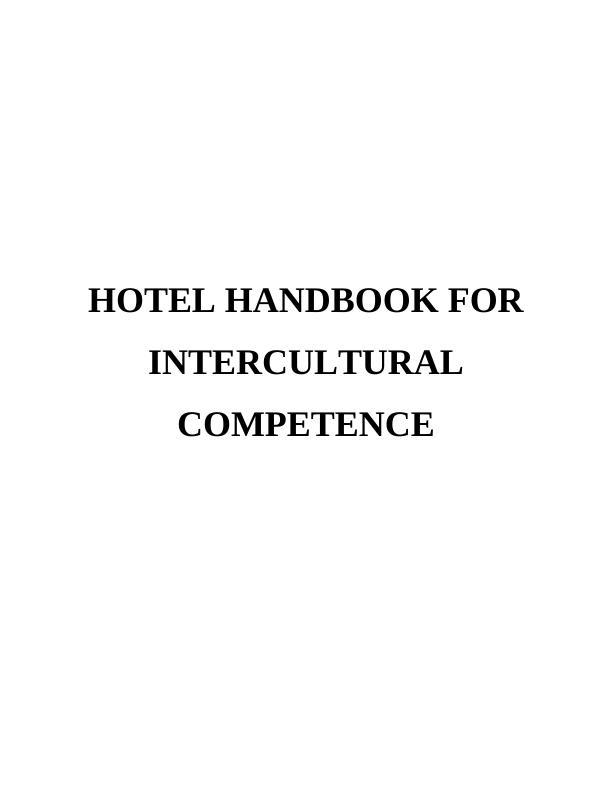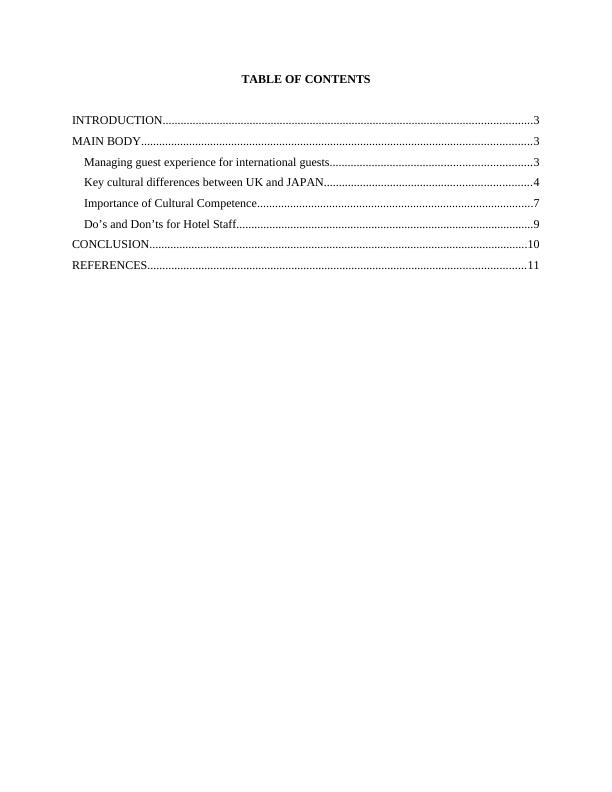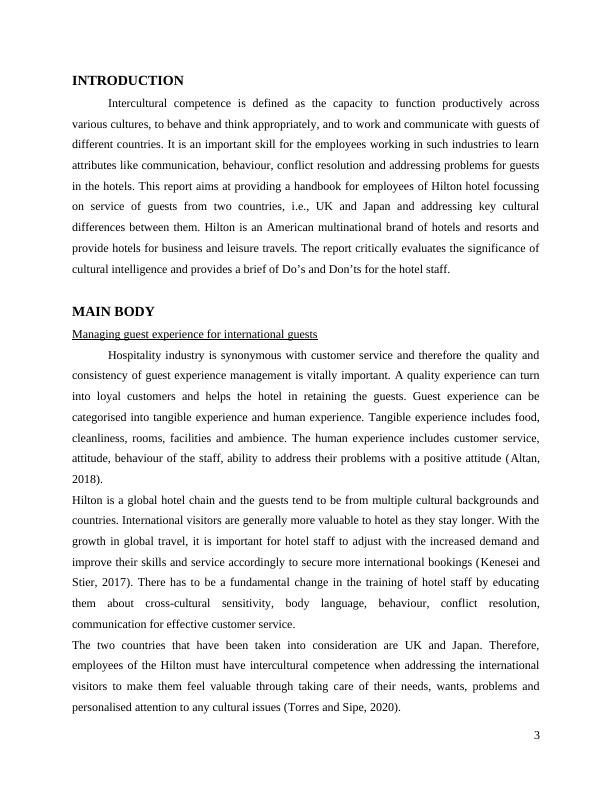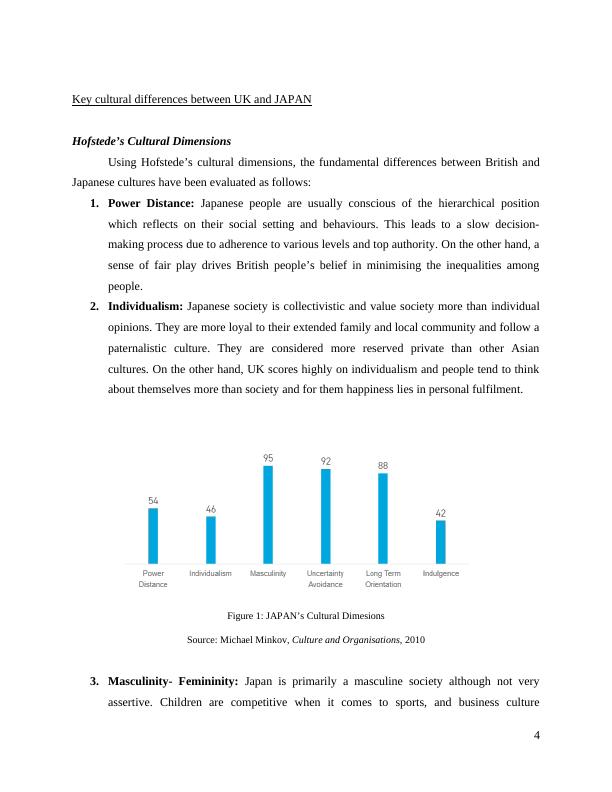Hotel Handbook for Intercultural Competence
11 Pages3079 Words75 Views
Added on 2023-01-09
About This Document
This report provides a handbook for hotel employees on managing guest experience for international guests, addressing key cultural differences between UK and Japan, and the importance of cultural competence in the hospitality industry. It also includes a list of Do's and Don'ts for hotel staff to ensure effective customer service.
Hotel Handbook for Intercultural Competence
Added on 2023-01-09
ShareRelated Documents
End of preview
Want to access all the pages? Upload your documents or become a member.
Hotel Handbook: Guidelines for Staff and Employees
|9
|2708
|39
Hotel Handbook: Cultural Differences and Guest Experience
|9
|2493
|31
Intercultural Competence in the Hospitality Industry
|9
|2586
|55
Hotel Handbook for Intercultural Competence
|8
|2452
|26
Cultural Awareness in Japan's Hospitality Industry
|6
|1544
|75
Handbook for Hotel Staff: Managing the Guest Experience for International Visitors
|7
|2371
|59




